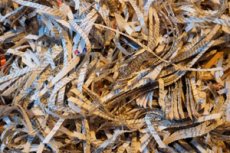New publications
Osteoarthritis can be treated with algae
Last reviewed: 02.07.2025

All iLive content is medically reviewed or fact checked to ensure as much factual accuracy as possible.
We have strict sourcing guidelines and only link to reputable media sites, academic research institutions and, whenever possible, medically peer reviewed studies. Note that the numbers in parentheses ([1], [2], etc.) are clickable links to these studies.
If you feel that any of our content is inaccurate, out-of-date, or otherwise questionable, please select it and press Ctrl + Enter.

Arthrosis is a serious disease that only progresses over time: cartilage is damaged, joint mobility worsens. Today, arthrosis is considered an incurable disease. Doctors can only offer the patient those drugs that temporarily alleviate symptoms and slow down the destruction of cartilage tissue.
However, scientists continue to search for a solution to this problem. Today they propose stopping degenerative changes in joints with the help of kelp.
How is arthrosis treated these days? As a rule, it is therapeutic exercise, physiotherapy, analgesics and non-steroidal anti-inflammatory drugs. Over the years, when the disease worsens, many patients have to resort to joint replacement.
Common medications containing glucosamine and chondroitin are positioned as means of stopping the progression of the disease. But doctors in Western countries have not been able to scientifically prove such an effect.
A new research project by Dr. Marcy Zenobi-Wong has revealed a “light at the end of the tunnel”: perhaps osteoarthritis can be cured after all?
By conducting in vitro tests, scientists have proven that the polysaccharide substance alginate, which is an extract from Laminaria hyperborean, is capable of blocking the destruction of cartilage structures and their destructive changes. It was found that the effectiveness of this substance is close to the capabilities of the cartilage's own protective molecules.
The specialists conducted experiments with derivatives of this polysaccharide, using them for exposure under various conditions. It turned out that the polysaccharide has the property of a powerful antioxidant and can resist harmful oxidation of cartilage cells and a decrease in the cell population.
The structure of alginate, filled with sulfate groups, becomes an excellent antioxidant for cartilage. In addition, the substance can serve as an immunomodulator and an inflammatory response controller: alginate reduces the expression of anti-inflammatory genes and damages the vicious cycle of arthrosis development.
The researchers noted that in all experiments without exception, the most effective chondroprotector drug was alginate, and not the polymer native molecular structure.
"Marine alginate is an immunomodulator and antioxidant, it can slow down the destructive processes inside the cartilage. We believe that the new drug will be able to stop the disease," said Professor Markus Rottmar. "We have managed to create a remedy that will not only eliminate the symptoms, but will be able to influence the disease process itself, preventing the need for long-term treatment and even joint replacement surgery."
A potential drug should be extremely effective, and the treatment should be affordable and easily tolerated. The use of seaweed has virtually no side effects, but can significantly affect the pathogenesis of a disease such as arthrosis.

 [
[